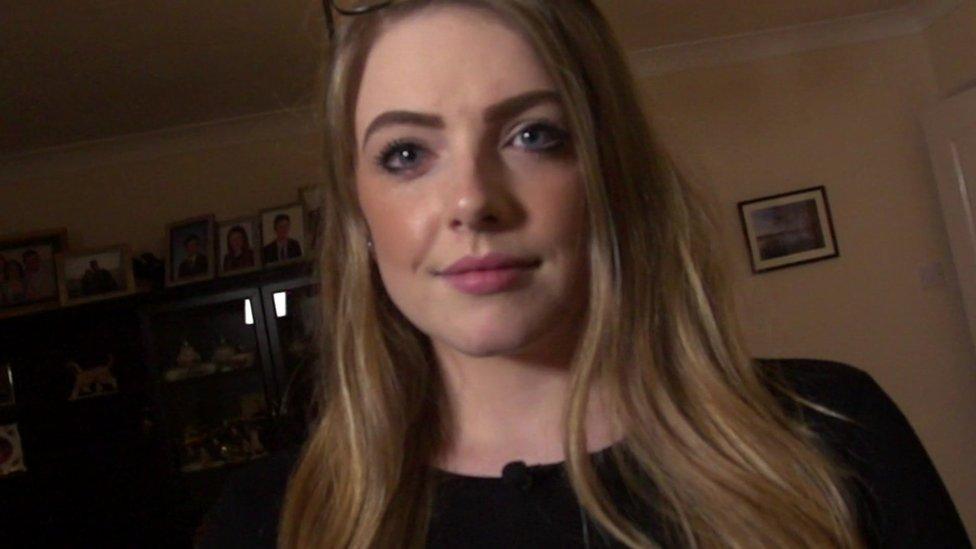Eating disorder used to sell diets on Instagram
- Published
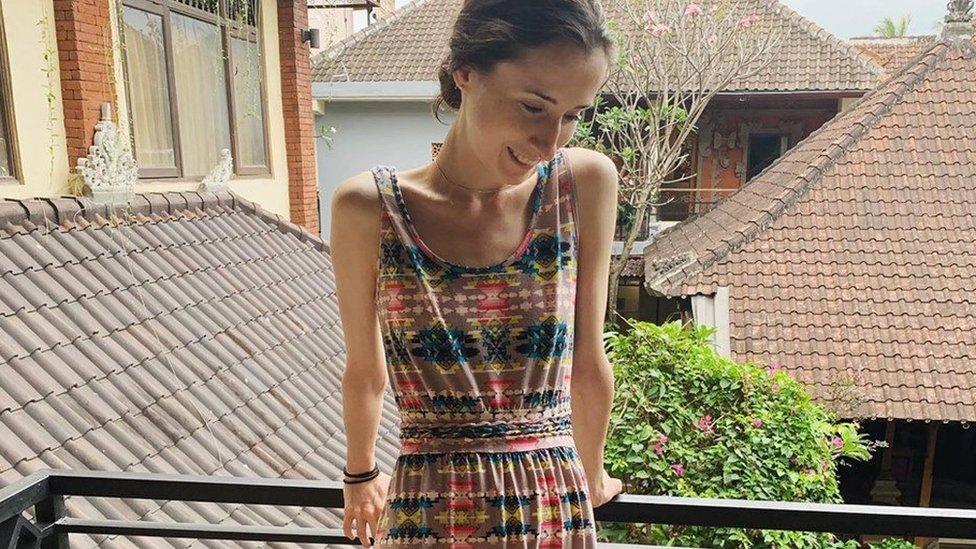
Ms Henry describes herself as a mental health advocate
Instagram accounts are using images of a person recovering from an eating disorder to advertise weight loss.
The BBC has seen more than 30 accounts using the photos and some of them have more than a million followers.
The photos were taken by Kara Henry to document her journey of recovery from an eating disorder when she weighed just over four stone.
Her images have been uploaded without her permission alongside claims that this shows successful weight loss.
Visitors to the accounts using Ms Henry's images are urged to "click the link in the bio" to buy a tailored weight loss or diet plan to help achieve the results shown in the picture.
Instagram has not responded to a request for comment.
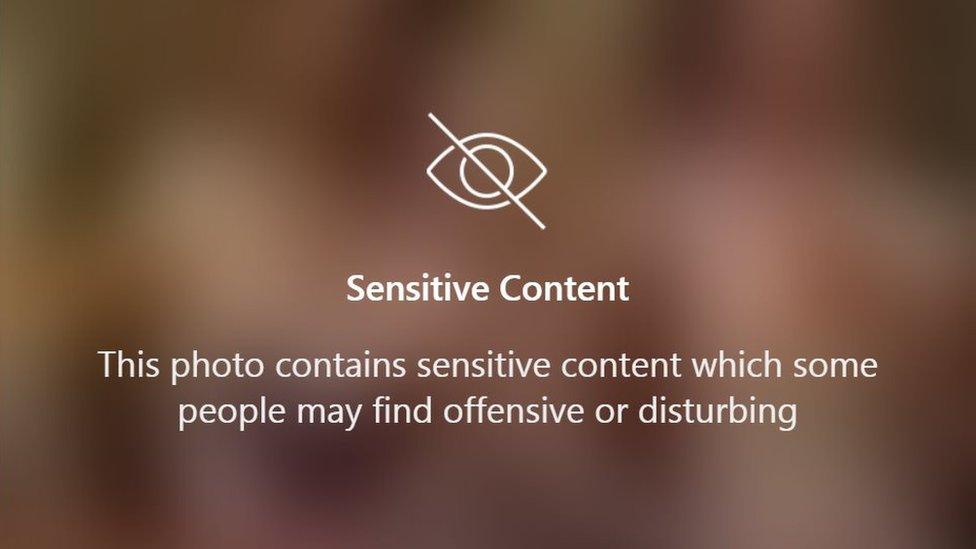
This warning occasionally appears when Ms Henry's images are posted elsewhere on Instagram
Ms Henry told the BBC she estimates the images have been uploaded almost 100 times over the past three months, yet she was not able to get them removed.
"It's completely out of my control," she said. "It's a picture of me being used completely out of context and inappropriately.
"It's being published to make it look like I'm going from a healthy weight to 60 pounds, with a message advertising a diet plan. It's outrageous, it's ridiculous.
"I keep reporting it and hoping for the best. I have a lot of people telling me they're reporting it too, and yet there seems to be no action from Instagram."
Since the BBC contacted Instagram for a comment about the images, several of the offending posts have been removed, but many remain accessible.
In one instance uploaded on 6 January 2020 which has not been removed, the images have been liked more than 14,000 times and are accompanied by hashtags such as "#ketodietlife, #howtoloseweight, and #extremeweightlossjourney".
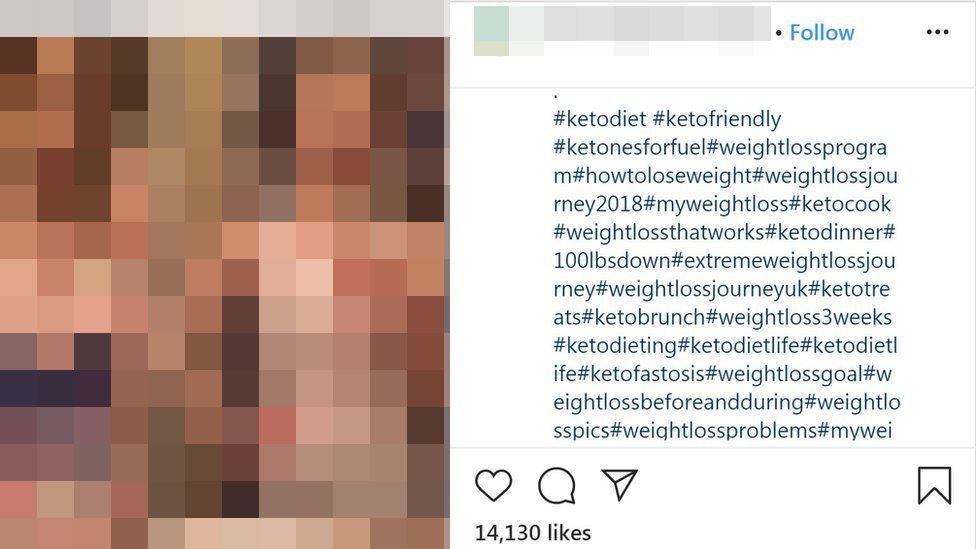
The BBC has chosen to blur the images of Ms Henry, as well as the name of the offending account
Ms Henry described the way she looked in one of the images as "emaciated" - and said its purpose was to document her recovery.
"When I posted those pictures I was in a different place in my recovery," she said. "Now that I'm a little bit further along I think that picture isn't helpful even attached to a good message.
"I worry it makes people feel invalidated because their eating disorder doesn't look a certain way. It's a huge misconception that the only eating disorders are the ones that make you emaciated.
"At least my caption correctly, and proudly, depicts the story behind the sensationalised picture - a story of recovery, healing, and a lot of hard work and personal growth."

What are the signs of eating disorder?
The charity Beat, external says the main signs to watch out for are:
becoming obsessive about food
changes in behaviour
having distorted beliefs about their body size
often tired or struggling to concentrate
disappearing to the toilet after meals
starting to exercise excessively
If you’ve been affected by eating disorders, help and support is available via the BBC Action Line

Instagram does not have a "retweet" function like Twitter. That means people on Instagram will often reupload images from another user, and link back to their account in the image's description.
The side effect of this is that every time the image is uploaded to Instagram, Ms Henry receives a notification that she has been tagged in an image.
Since the BBC interviewed Ms Henry for this article, the image has been uploaded again without her consent.
- Published30 January 2020
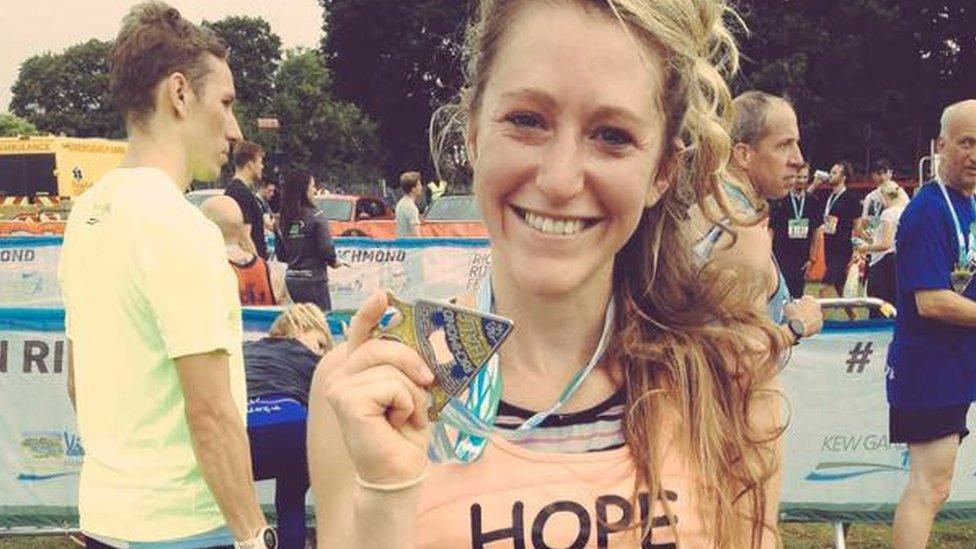
- Published28 October 2019
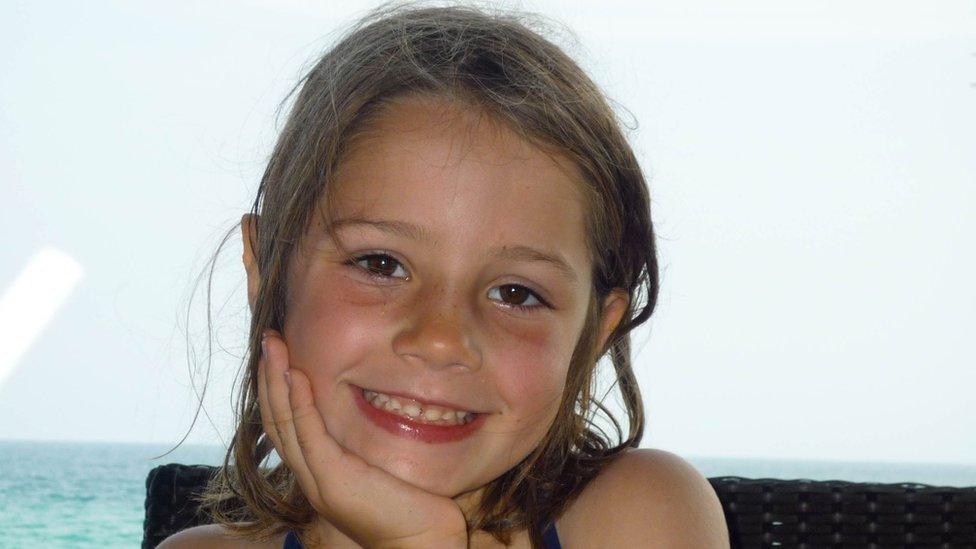
- Published20 March 2019
